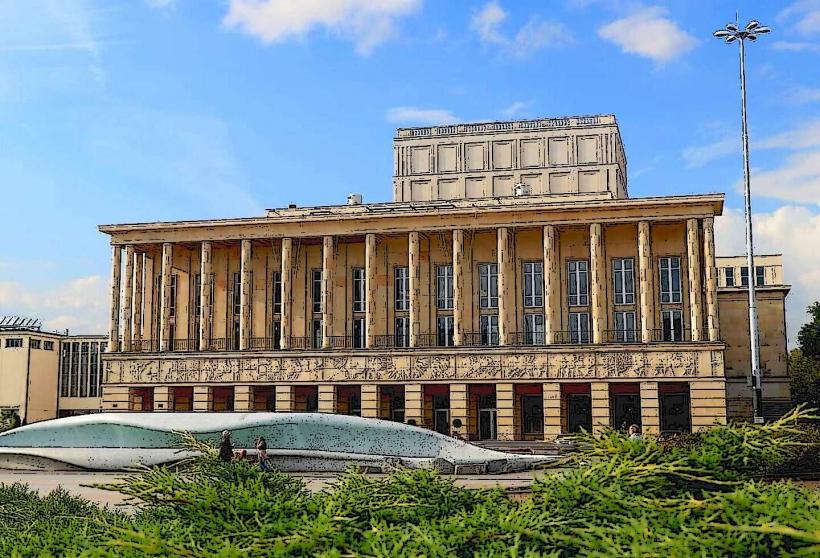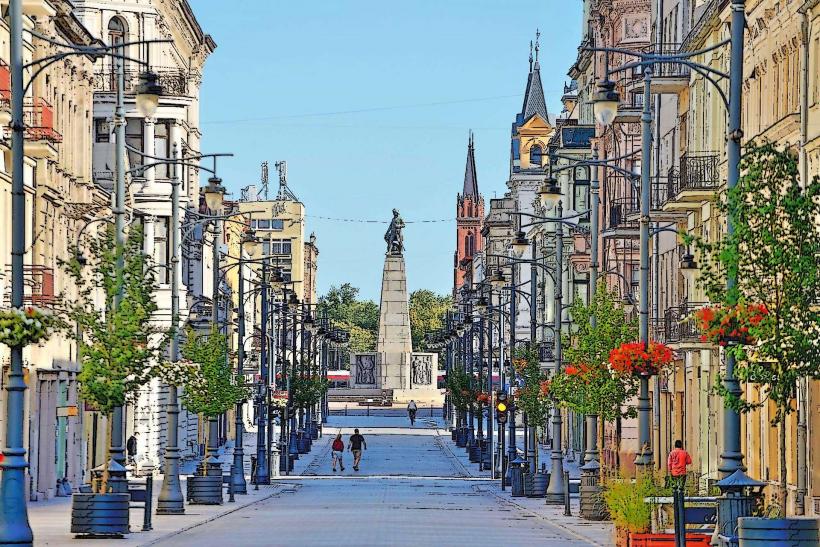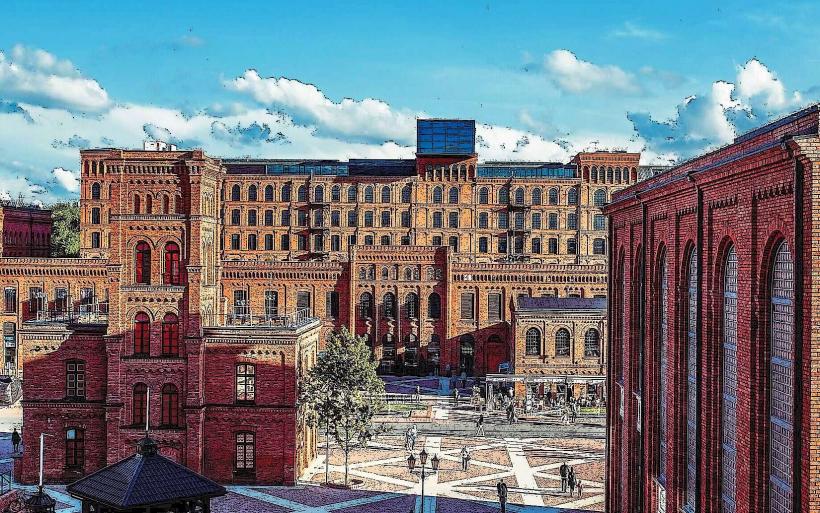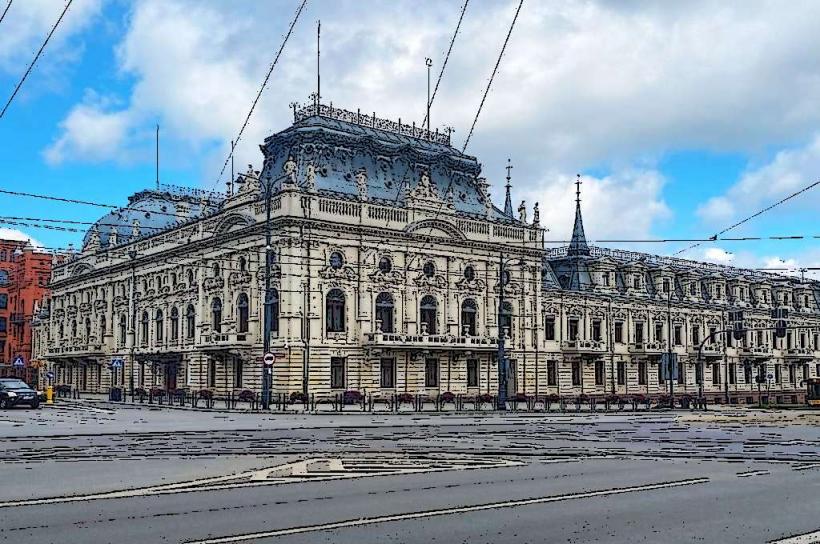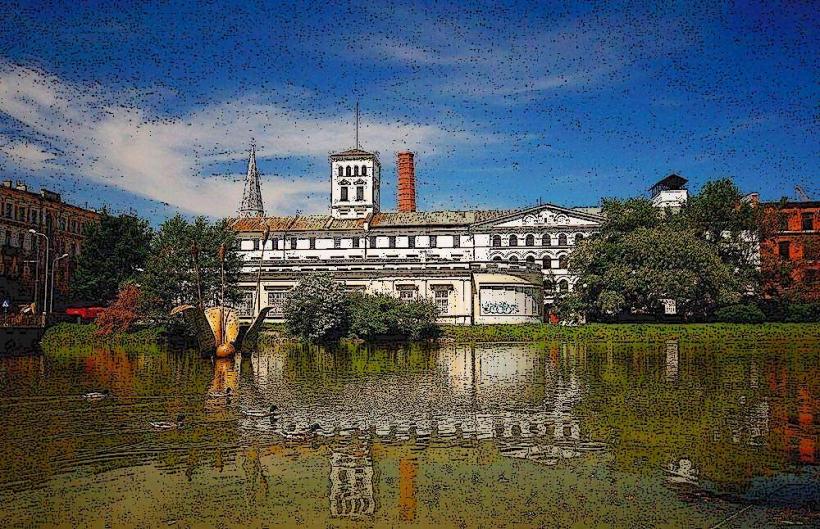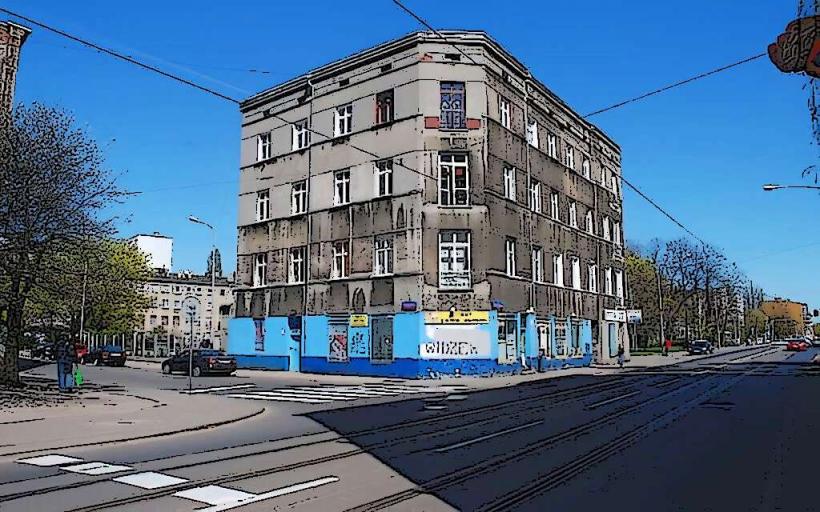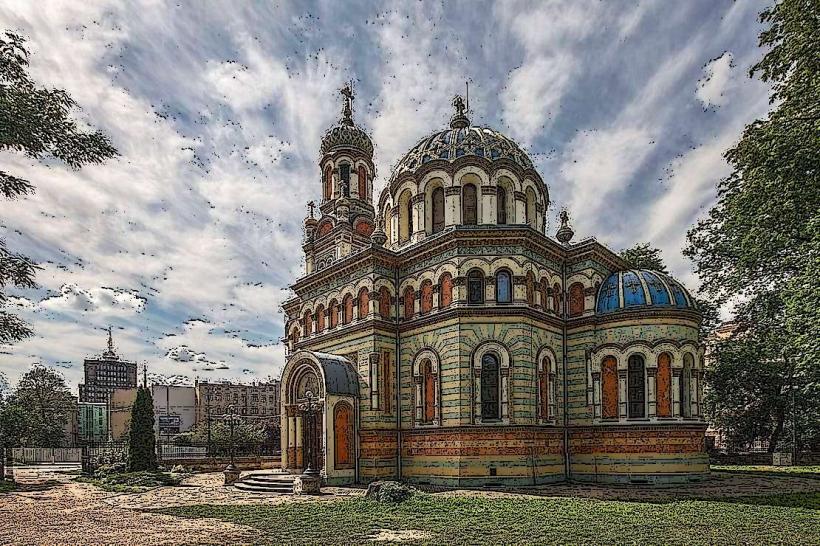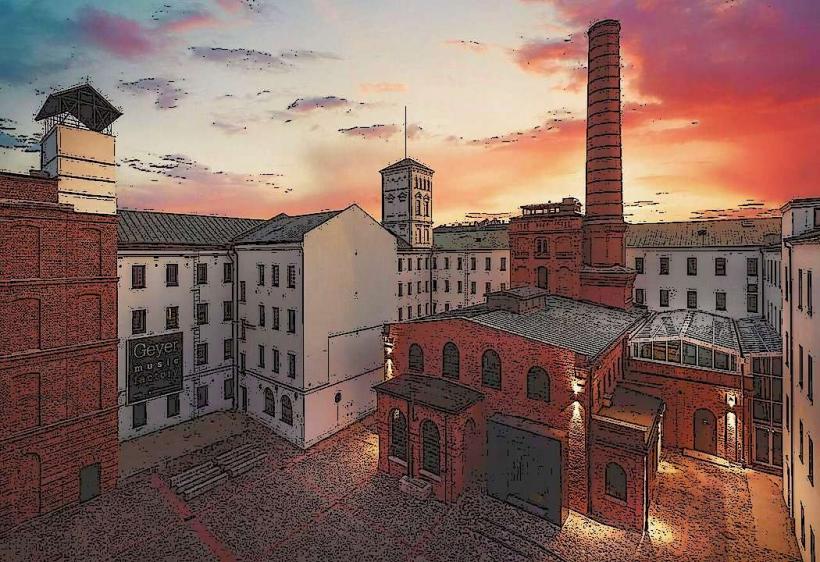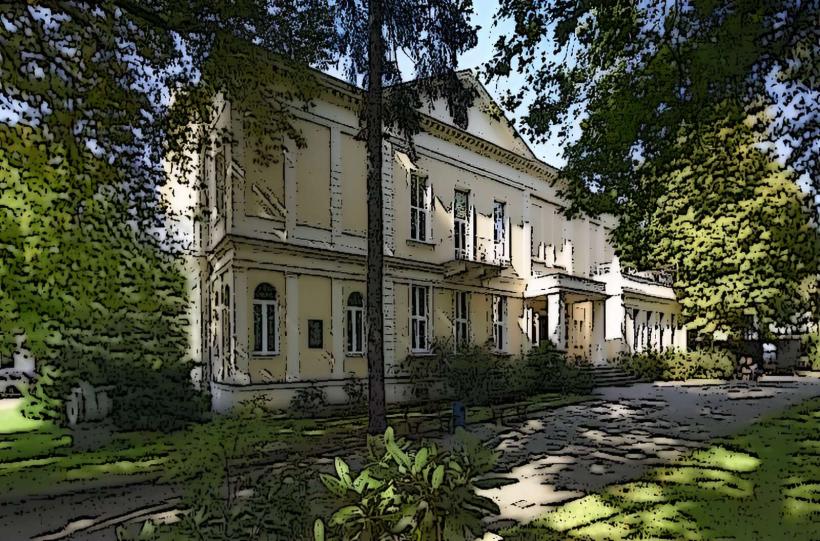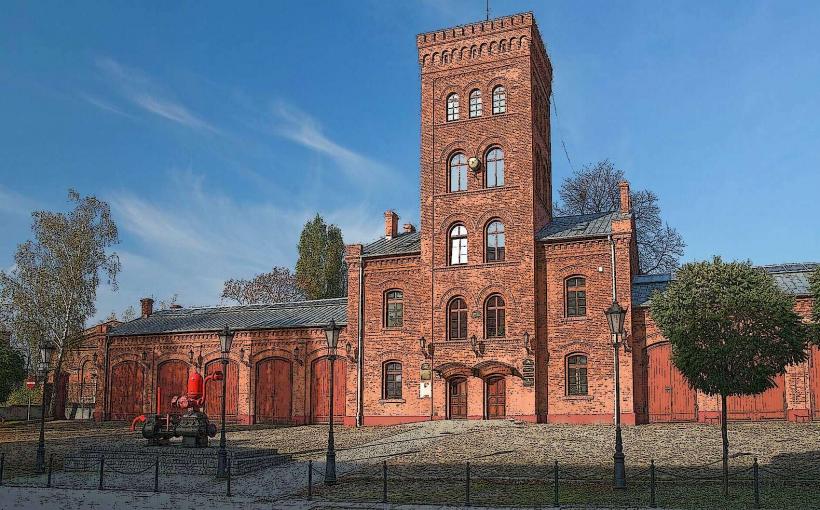Information
City: LodzCountry: Poland
Continent: Europe
Łódź is one of Poland's largest and most vibrant cities, located in the central part of the country. Known historically as an industrial powerhouse, it has undergone significant transformation in recent years and is now a hub for culture, education, and technology. Łódź is the capital of the Łódź Voivodeship and is a city with a rich industrial heritage, mixed with modern urban development.
History
Łódź’s history can be traced back to the 14th century, but it was in the 19th century that the city began to rapidly develop due to its role as a major center of textile manufacturing. During the Industrial Revolution, Łódź became one of the largest textile centers in Europe, attracting workers from across Poland and abroad. The city’s growth was driven by wealthy industrialists, many of whom built grand palatial homes and factories, some of which still stand today as landmarks.
The city's industrial boom in the late 19th and early 20th centuries earned it the nickname "Polish Manchester." However, after World War II, Łódź faced economic challenges, and the collapse of the textile industry in the late 20th century contributed to a period of decline. In recent decades, however, Łódź has reinvented itself, becoming a center for business, culture, and education.
Geography and Layout
Łódź is located at the intersection of several major transportation routes in Poland, making it a key city for both industry and commerce. The city is situated along the Łódka River, which has been central to its development. Łódź is known for its wide streets, large, historic factories, and sprawling industrial areas, which have been transformed into cultural spaces, business districts, and residential areas.
The city is laid out in a somewhat linear fashion, with its most famous street, Piotrkowska Street, running through the heart of the city. Piotrkowska is one of the longest commercial streets in Europe, lined with historical buildings, shops, restaurants, and cultural venues. The city is also known for its expansive green spaces, including the Łódź Botanical Garden and the numerous parks scattered throughout the city.
Economy
Łódź was historically a major industrial center, particularly for textiles, and though this industry has declined, the city’s economy has diversified. Today, Łódź is an important center for education, technology, and business. It has a growing IT sector and is home to several multinational companies in industries such as logistics, manufacturing, and services.
The city’s economy is also bolstered by its role as a cultural hub, with the film and fashion industries playing significant roles. Łódź is often considered Poland’s "Hollywood," as it is home to the National Film School in Łódź, one of the most prestigious film schools in Europe. The city also hosts the Polish Film Festival and has become a leading center for Polish cinema.
In addition to its industrial heritage, Łódź is an emerging hub for the modern digital economy. The city has attracted various tech startups, especially those focused on the creative industries, and has been developing initiatives to foster innovation and entrepreneurship.
Education and Research
Łódź is an important center for higher education, home to several universities and research institutions. The most prominent institution is the University of Łódź, established in 1945, which offers a wide range of programs in social sciences, humanities, and natural sciences. The city is also home to the Łódź University of Technology, which is one of the best technical universities in Poland, particularly known for its programs in engineering, IT, and design.
The National Film School in Łódź is another internationally renowned institution, attracting students from around the world to study film production, direction, and other aspects of the movie industry. The city’s educational institutions play a crucial role in its economic development by providing a highly educated workforce in various sectors, including technology, business, and the arts.
Culture
Łódź has a rich cultural heritage and is home to a thriving arts scene. The city is known for its eclectic mix of historical, industrial, and modern architecture, much of which has been preserved or repurposed for cultural and commercial use. Łódź’s transformation from an industrial city to a cultural center is most visible in the revitalization of old factory buildings, which have been turned into art galleries, cultural spaces, and trendy apartments.
The city hosts several major cultural events throughout the year, including the Łódź Film Festival, one of the oldest and most prestigious film festivals in Poland. Łódź is also home to the famous OFF Piotrkowska, a street full of bars, clubs, and cultural spaces that attract artists, musicians, and creatives. The city has a significant theater scene, with venues such as the Teatr Wielki (Great Theatre) and Teatr Nowy offering a variety of performances.
Łódź is also known for its fashion industry, with events like Fashion Week Poland drawing attention from around the world. The city’s historic textile industry has influenced its current reputation as a center for modern design and fashion.
Public Transport and Infrastructure
Łódź has a well-developed public transport system that includes buses, trams, and a modernized train network. The city's trams are a symbol of Łódź, and the public transport network is continually being improved to accommodate the needs of the growing population and the city's increasing role as a business and cultural center.
Łódź is well connected to other cities in Poland via road and rail. It is located roughly halfway between Warsaw and Wrocław, making it a strategic point for transport and commerce. The city’s international airport, Łódź Władysław Reymont Airport, offers flights to major European destinations, further enhancing its connectivity.
Green Spaces
Łódź is home to several parks and green spaces, making it one of the greenest cities in Poland. Some of the most notable green areas include:
- Łódź Botanical Garden: Located in the southern part of the city, this garden is one of the oldest and most beautiful botanical gardens in Poland.
- Piłsudski Park: A large, central park with walking paths, lakes, and gardens, perfect for relaxation and outdoor activities.
- Ōdrowki Park: A green space by the river, popular for walking, cycling, and outdoor sports.
- Księży Młyn: A park and historic area that was once part of the industrial area and has now been transformed into a cultural and recreational space.
The city has also committed to increasing green spaces and promoting sustainable urban development. Numerous green areas along the riverbanks and in the urban core contribute to the city's overall livability.
Modern Development and Urbanism
Łódź has undergone significant urban revitalization in recent years. The city's industrial areas have been transformed into cultural spaces, business centers, and residential areas. Notable developments include the revitalization of the Manufaktura complex, a former factory turned into a large shopping, dining, and entertainment complex, as well as the redevelopment of the EC1 Łódź power plant into a cultural center and museum.
Modern architecture contrasts with the city’s industrial past, with new office buildings, modern residential developments, and refurbished factories standing alongside historic landmarks. This balance of old and new defines the city’s urban landscape.
Social Life and Lifestyle
Łódź has a vibrant social life, driven by its growing student population, creative industries, and cultural events. The city’s café culture is thriving, with numerous cafés, bars, and restaurants offering everything from Polish cuisine to international flavors. The city's nightlife is active, with a range of clubs, pubs, and live music venues catering to all tastes.
Łódź is known for being a city of young people, and its vibrant atmosphere is felt in the many student and youth-driven events that take place throughout the year. With a rich cultural calendar and a growing arts scene, Łódź offers residents and visitors a high quality of life, with plenty of opportunities for entertainment, creativity, and relaxation.
Challenges
Despite its transformation, Łódź faces challenges, particularly related to its post-industrial economy. The city is working to ensure that its modern development benefits all of its residents, including addressing issues like affordable housing, public transport, and environmental sustainability.
Future Outlook
Łódź is well-positioned for the future, with a strong economy, rich cultural scene, and a commitment to modern urban development. The city continues to attract investment and talent, especially in the creative industries, technology, and education sectors. With ongoing improvements to its infrastructure and a focus on sustainability, Łódź is set to become one of Poland’s leading urban centers in the coming years. The city’s blend of history, industry, and modernity makes it a fascinating place to live, work, and visit.

